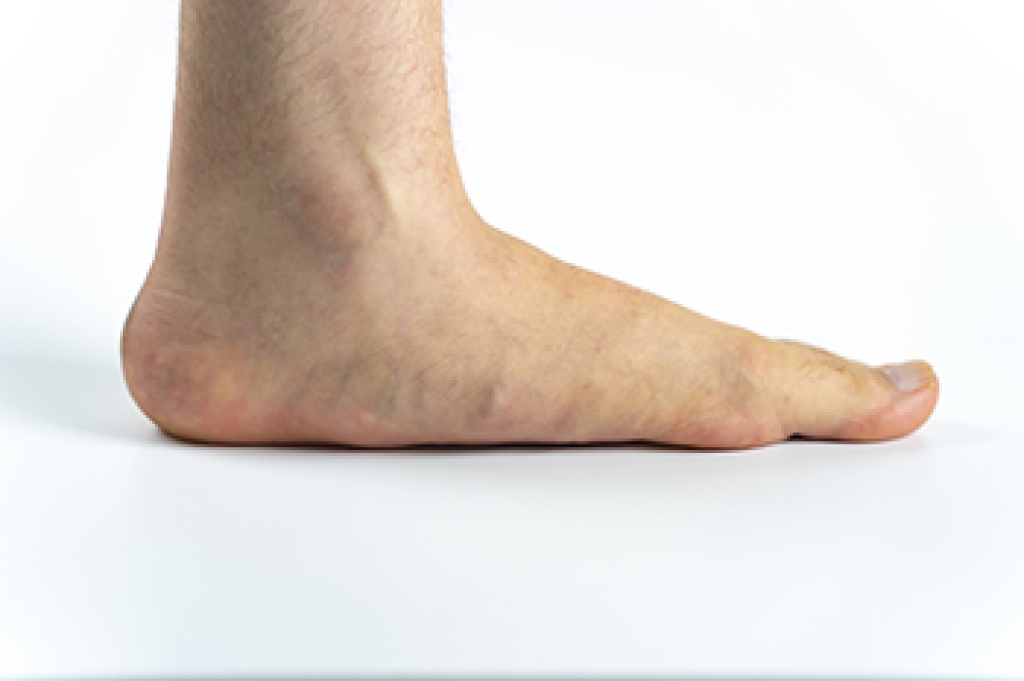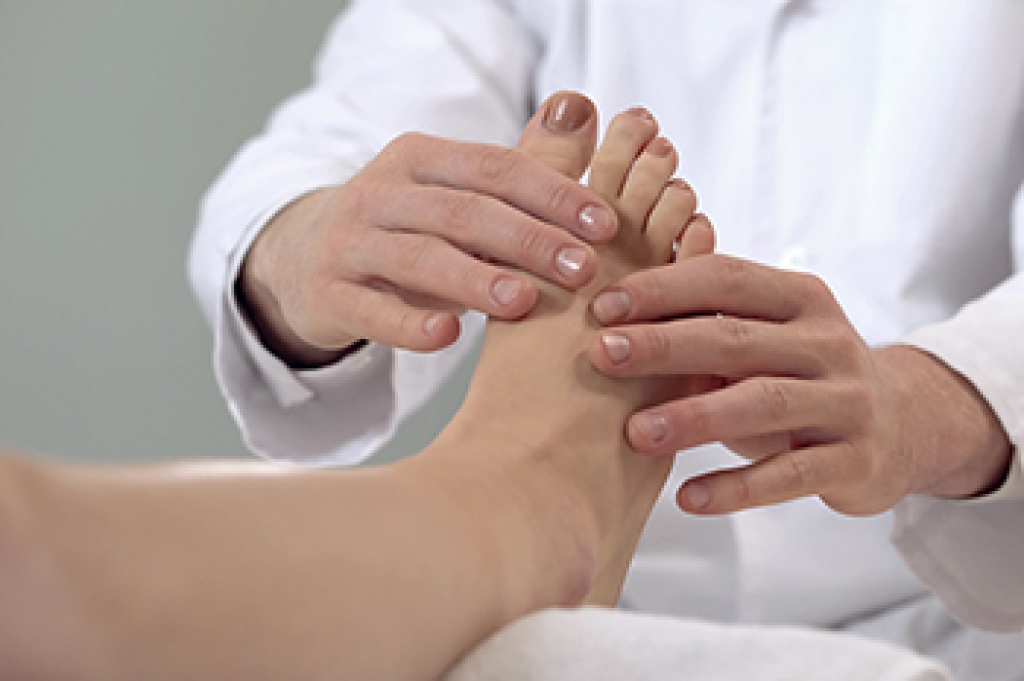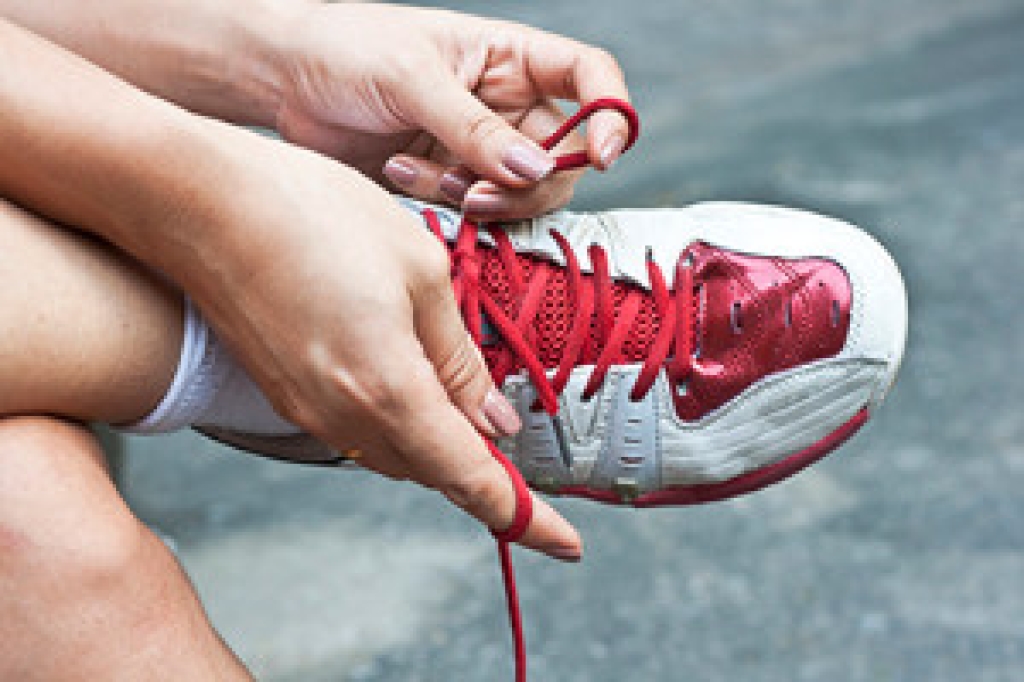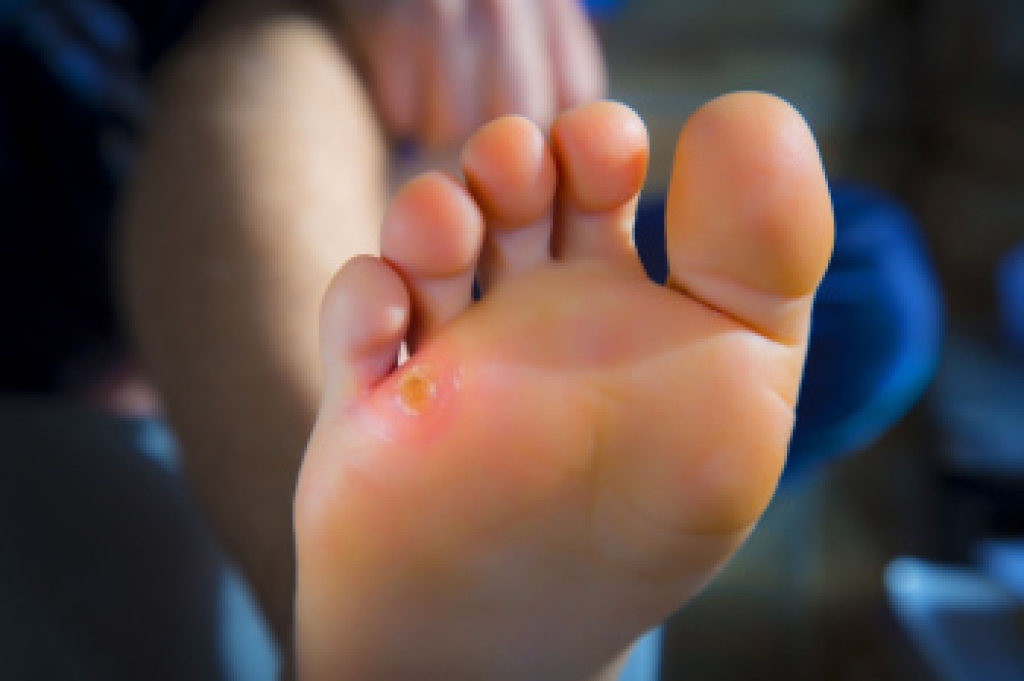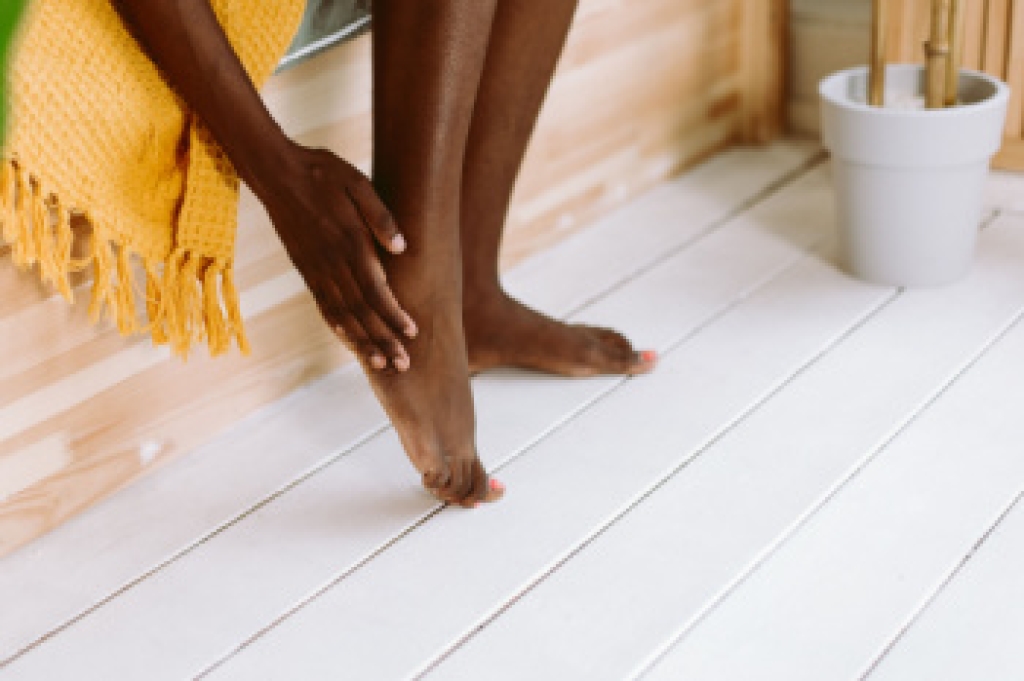
Heel pain is a common problem that can result from conditions, such as plantar fasciitis or Achilles tendonitis. Plantar fasciitis often causes sharp pain at the bottom of the heel, especially with the first steps in the morning or after prolonged sitting. Achilles tendonitis typically produces pain at the back of the heel and along the tendon, often worsening with activity or when climbing stairs. These conditions can develop from repetitive stress, improper footwear, or sudden increases in physical activity, and may make walking, running, or standing uncomfortable. The heel may appear slightly swollen or red, while the affected area feels tender and stiff. A podiatrist can help by performing a thorough examination, using imaging if needed, and recommending targeted exercises, orthotics, or other treatments to reduce inflammation and improve mobility. If you have heel pain, it is suggested that you make an appointment with a podiatrist.
Many people suffer from bouts of heel pain. For more information, contact one of our doctors of Favor Foot Ankle Leg & Wound Center. Our doctors can provide the care you need to keep you pain-free and on your feet.
Causes of Heel Pain
Heel pain is often associated with plantar fasciitis. The plantar fascia is a band of tissues that extends along the bottom of the foot. A rip or tear in this ligament can cause inflammation of the tissue.
Achilles tendonitis is another cause of heel pain. Inflammation of the Achilles tendon will cause pain from fractures and muscle tearing. Lack of flexibility is also another symptom.
Heel spurs are another cause of pain. When the tissues of the plantar fascia undergo a great deal of stress, it can lead to ligament separation from the heel bone, causing heel spurs.
Why Might Heel Pain Occur?
- Wearing ill-fitting shoes
- Wearing non-supportive shoes
- Weight change
- Excessive running
Treatments
Heel pain should be treated as soon as possible for immediate results. Keeping your feet in a stress-free environment will help. If you suffer from Achilles tendonitis or plantar fasciitis, applying ice will reduce the swelling. Stretching before an exercise like running will help the muscles. Using all these tips will help make heel pain a condition of the past.
If you have any questions, please feel free to contact our office located in South Amboy, NJ . We offer the newest diagnostic and treatment technologies for all your foot care needs.
